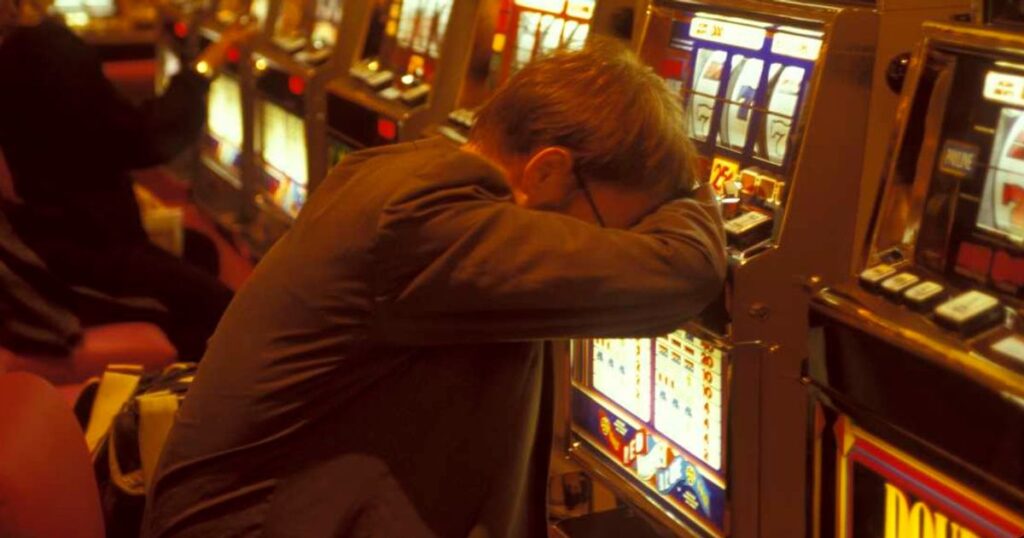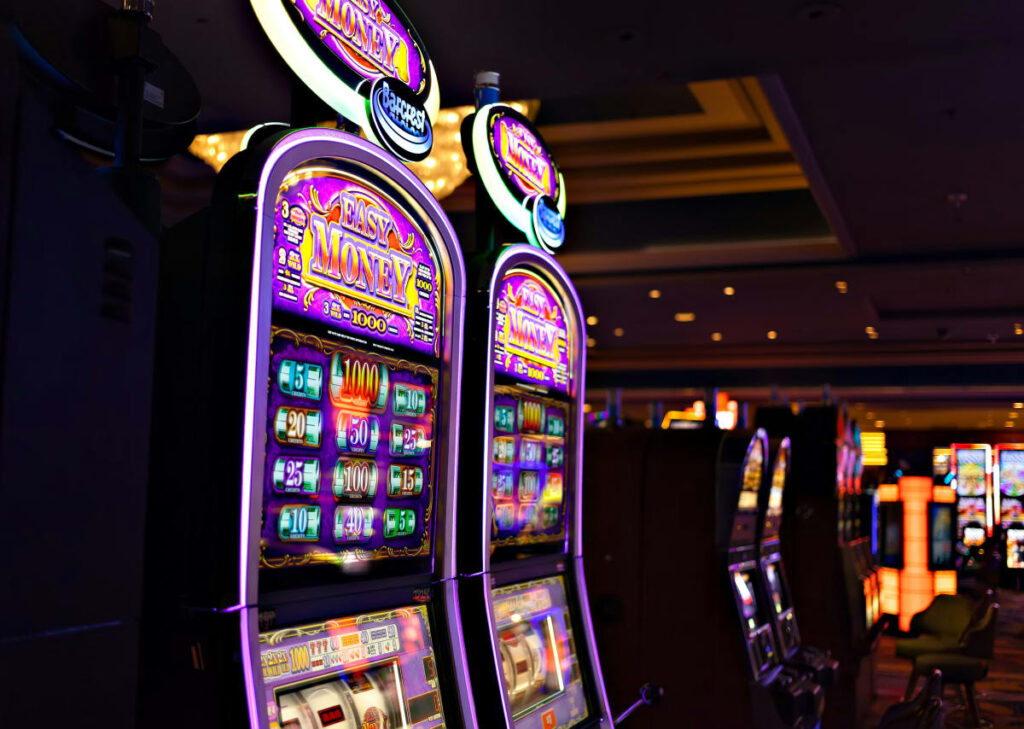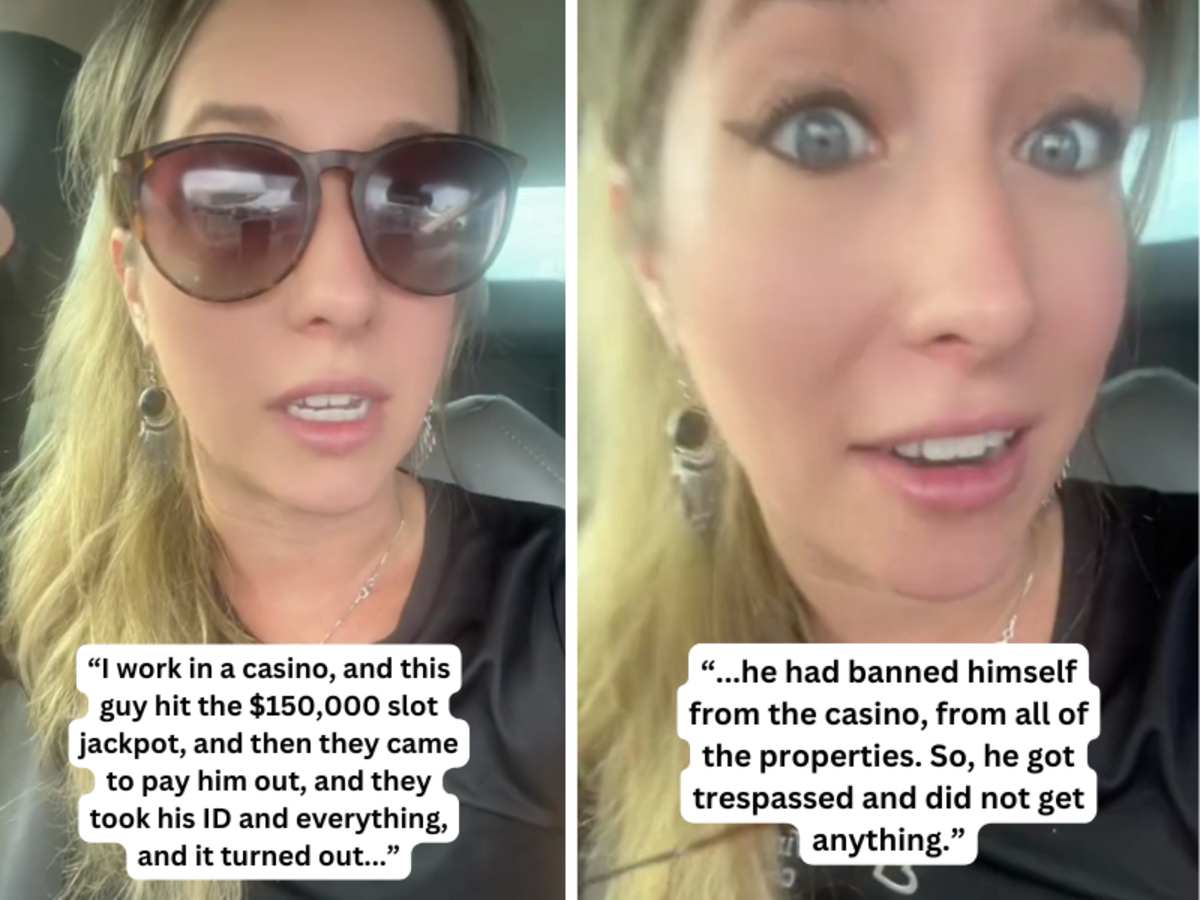hitting the jackpot at a casino—a cool $150,000—and feeling like your luck just skyrocketed. Visions of new cars, vacations, or maybe paying off a few bills start swirling in your head. But then, just as fast as it came, your fortune vanishes into thin air. That’s exactly what happened to a man who thought he’d won big, only to walk away with nothing because of a tricky little loophole.
Let’s dive into this wild story of luck gone wrong and why casinos always seem to come out on top.
The Jackpot that Never Was
It all started when Kenny, our unlucky protagonist, hit a $150,000 jackpot on a slot machine at a casino. Jackpot bells rang, lights flashed, and for a brief moment, he was living the dream. But that dream quickly turned into a nightmare.
Kelly (@casinomassagekelley), who works at the casino, shared this bizarre story on TikTok, and it went viral. According to Kelly, after Kenny hit the jackpot, the casino staff came over to confirm his win and check his ID. That’s when everything unraveled. It turned out that Kenny had previously banned himself from the casino, voluntarily signing up for a self-exclusion program designed for people who struggle with gambling addiction. By law, if you’ve banned yourself, you’re not allowed to collect any winnings from gambling.
So instead of walking away with $150,000, Kenny walked away with nothing. Worse than nothing, actually—he was escorted out of the casino for trespassing on a property he was legally excluded from.
Talk about hitting rock bottom after what should’ve been the best day of your life.
Why Self-Exclusion Programs Exist
Self-exclusion programs are meant to help people with gambling problems avoid temptation. They allow gamblers to voluntarily ban themselves from participating in any gambling activities, whether it’s at casinos, online platforms, or even fantasy sports contests. While this system is beneficial for those struggling with addiction, it can come with some brutal consequences—like Kenny’s jackpot that wasn’t.
These programs are legally binding. Once you sign up, you’re blacklisted from all gambling establishments under that program’s jurisdiction. If you try to play, even if you win big, your winnings can be legally withheld, and you could be charged with trespassing. Ouch.
It’s a harsh reality, but the aim is to protect people from spiraling into further debt or losing control.

The Internet’s Take on the Situation
When Kelly’s TikTok video hit the internet, people had feelings. Some sympathized with Kenny, while others pointed out the risks of gambling and how casinos always seem to have the upper hand.
One user commented, “Casinos lie and scam people to get out of anything,” while another shared a similar story: “I’ve seen a guy not get his jackpot because he owed child support.” Others tried to find humor in the situation, with one person saying, “Chances are he would have given it all back anyway. They just expedited the process.”
It’s clear that while gambling can offer thrills, it’s also fraught with these kinds of dangers—ones that often leave the casino as the real winner.
Not the First Time Luck Was Snatched Away
Kenny’s story isn’t the first time someone thought they’d hit it big, only to have the rug pulled out from under them.
Back in 2016, Katrina Bookman made headlines when she thought she’d won $42 million at Resorts World Casino in New York. That would have been the largest slot machine jackpot in U.S. history. Excited beyond belief, she took a selfie with the slot machine showing her win, but her celebration was short-lived. The casino claimed the machine had malfunctioned and that she had actually only won $2.50. To soften the blow, they offered her a complimentary steak dinner. Talk about adding insult to injury.
Bookman wasn’t about to let it slide. She sued the casino, seeking compensation for the mental anguish she endured. Her attorney, Alan Ripka, called the casino’s actions negligent, arguing that they should pay out the maximum amount the machine was legally allowed to offer: $6,500. While it wasn’t the $42 million she’d initially hoped for, she was determined to get something out of the ordeal.
Are Casinos Playing Fair?
Kenny’s and Bookman’s stories leave us with a lingering question: are casinos really playing fair?
Casinos operate under a strict set of rules and regulations, and while these systems are designed to prevent fraud and ensure fairness, they often seem to work in the house’s favor. Whether it’s a self-exclusion clause, a malfunctioning machine, or an unpaid debt, there always seems to be a reason for casinos to hold onto the winnings. And while the legal frameworks are there to protect the players, they also protect the establishments.
In Kenny’s case, his past decisions came back to haunt him in the worst possible way. And in Bookman’s case, the fine print on the slot machine kept her from her life-changing win.

What Can Gamblers Do?
So what’s the lesson here? If you’re a gambler, know the rules—every little one of them. Self-exclusion might seem like a good idea in moments of clarity, but if you change your mind later, there’s no going back. And if a slot machine seems too good to be true, it probably is.
Also, if you’re gambling with the hopes of hitting it big, remember: casinos aren’t in the business of giving money away. Always read the fine print, keep an eye on your finances, and remember that luck can change in an instant.
Final Thoughts
Casinos can be a place of thrill and excitement, but they’re also a business—and a smart one at that. Stories like Kenny’s and Katrina Bookman’s remind us that sometimes, even when you think you’ve won, the house still finds a way to come out on top.
So, the next time you feel like hitting the slots, just remember: even when you win, you might not walk away a winner. It’s always a good idea to gamble responsibly, and maybe, just maybe, keep your expectations in check. After all, the house always wins, right?

